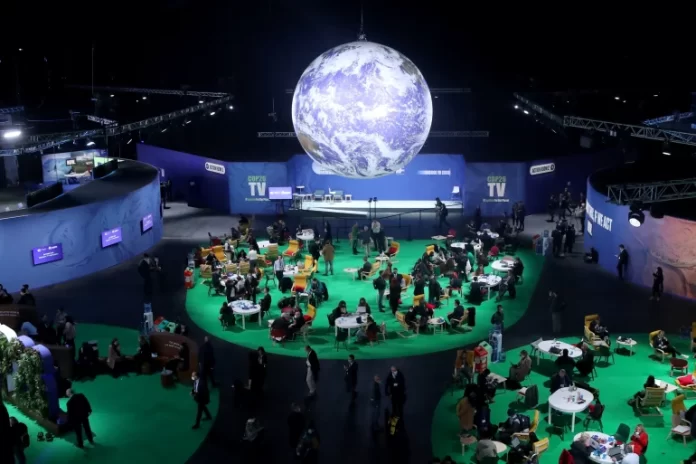
From Honduras to India, leaders from developing nations urged those from developed ones to live up to their financial commitments.
Countries that are among the most vulnerable to the impacts of global warming have a singular message for the world’s richest nations: live up to your financial commitments to fight climate change.
From Honduras to India, from Libya to the Seychelles, leaders from developing countries imparted this same message to those from wealthier nations as the United Nations COP26 climate talks got underway in Glasgow, Scotland, on Monday.
“For many developing nations, climate change is a big danger to their very existence,” said India Prime Minister Narendra Modi. “Time demands that we need to take big steps.” He called on developed nations to make $1 trillion in climate finance available “as soon as possible.”
The talks in Glasgow are providing an opportunity for leaders from across the globe to discuss the most pressing climate issues. Rich nations have yet to make good on a longstanding pledge to contribute $100 billion annually to help developing countries deal with the effects of climate change. A report last month said that target probably won’t be met until at least 2023.
The wealthiest countries must set an example and “speed up this financing,” French President Emmanuel Macron said. He called for nations “that are not contributing what they should today to meet their responsibilities between now and the end of COP.”
While some developing countries — such as India and China — are among the world’s largest emitters of greenhouse gases, many of the world’s smallest and poorest countries are disproportionately affected by the effects of global warming. And they often have the least amount of resources to deal with it.
Africa Suffering
“Despite the fact that they’re not responsible for the climate crisis, Africa is suffering the worst consequences from this phenomenon, economically, socially and politically,” said Egypt President Abdel-Fattah El-Sisi.
Wealthy nations “must pay their contributions” toward creating infrastructure in developing countries to help accelerate the transition to renewable energy, according to Libya Prime Minister Abdul Hamid Dbeibah. Leaders of other governments including Jamaica, Gabon and Palestine made similar appeals.
In an emotional speech, Honduras President Juan Hernandez said that in the last half century, 67 of the 82 natural disasters his country has experienced were induced by climate change, resulting in billions of dollars in economic losses, and people suffering from displacements and pollution.
“Is this fair? Where is the environmental compensation the international community has promised?” Hernandez asked.
Maldives President Ibrahim Solih bemoaned that fact that climate financing often gets “mired in red tape” and paperwork, and he called for new steps to ensure rich countries fulfill their $100 billion annual pledge. The archipelago nation is at risk of disappearing under rising seas.
If global temperature rise reaches 2-degrees Celsius, “that is a death sentence to the Maldives,” and a “dark omen of the grim future that awaits the rest of the world,” Solih said. “What will it take for you to listen to us?”




